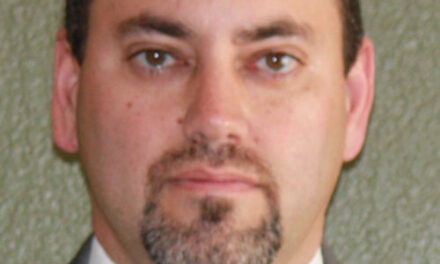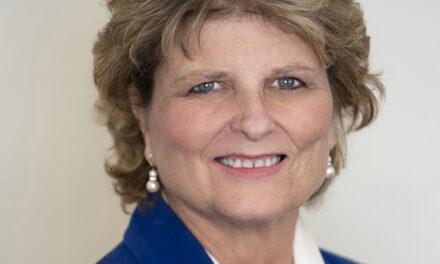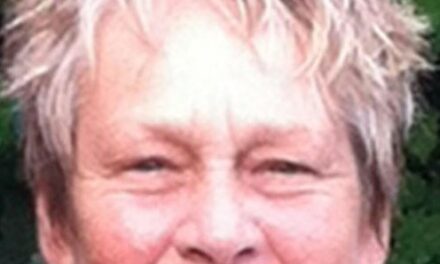There is a story about a mechanical engineer who dies and goes to heaven. But when he arrives at the pearly gates, he’s told he can’t come in, that he is being sent to hell.

Colleen Dougherty
Sometime later, it is discovered that he was sent to hell by mistake. His name was a common one and he’d been mixed up with someone else.
So the angels go “down” to bring him back. The gates of hell are opened.
“Excuse us,” they say, “but we’ve made a mistake. This man cared about others and did good work all his life. He shouldn’t have been sent here, and we’ve come to take him back.”
“Oh no,” the gatekeepers say, “you can’t have him back, we need him here! You see, he’s fixed the air conditioning and it’s not hot down here anymore!”
The man who told me this story owns several rental properties and he’s always cleaning up stuff that his tenants leave all over the place, sometimes at his own expense. While the story is rather humorous, he views it in a different way.
The engineer, rather than live in fear of the menacing (we assume) souls around him, pass judgement on them or wallow in his own sense of injustice, did what he’d always done in life: he followed his heart and showed care and concern for others.
In the behavioral health groups I run weekly at my job, we’ve been exploring the relationship between good and evil, light and dark, the so-called angels and devils on our shoulders. We’re currently watching an old episode of “Star Trek” called “The Enemy Within,” where, due to a transporter malfunction, Capt. Kirk becomes split into two beings — his dark side and his good side.
The dark Kirk calls the ship “mine,” beats people up, tries to attack a woman, is sneaky and conniving. His good side is kind, thoughtful and compassionate. When it finally becomes clear that neither can survive without the other, the ultimate act of courage to remedy the situation comes from the compassionate Kirk. This prompts the ship’s doctor to remark, “it appears man’s essential courage comes from his compassion.”
So now, we (that is myself and the 30+ men on federal probation I work with) are exploring the connection between compassion and courage. So far, we’ve agreed that compassion, which is the ability to recognize and feel the suffering of others, allows us to more clearly discern right from wrong, which then fuels our conviction to stand up against brutality, abuse and injustice.
The dark side sees the other not as self, but as enemy. It lives in fear of losing possessions, status, popularity or of not “getting its way.” From that perspective, actions that may look like power are actually being driven by panic and fear — survival instincts that manifest as flight (disengaging) or fight (attacking.)
Prior to viewing this “Star Trek” episode, we had listened to a TEDtalk by primate researcher Frans de Waal on “what is an alpha male.” It turns out that alpha males in chimpanzee troupes are not the ones who start trouble, but the ones who end it. They stop fights and resolve conflicts, usually pulling up for the underdog.
They also perform the most acts of empathy and compassion — many times more than any other member of the troupe. Their steadfast leadership and strength come from their capacity for compassion and their dedication to the welfare of the whole — not for a select few and not just for themselves.
It seems we witnessed this type of courage last March in the introduction and passage of several new animal control ordinances by our Valencia County commissioners. In a beautiful letter to the editor, a woman named Eileen lauded the courage, humility and humanity of shelter director Jess Weston, who sees animals “needless suffering daily but continues to lead and do his job.”
She thanked the volunteers, rescue groups and others who spoke confidently and courageously, in spite of anger, criticism and resistance from some, to do what was right for everyone in the “troupe” — animals and people, together.
She declared that “great courage was exhibited by our commissioners to vote for the new changes,” and I found Eileen’s last sentence to be very moving and profound. She wrote, “Perhaps also such caring for vulnerable animals may cause a new experience and love for another in need that we didn’t know existed.”
Imagine that! I hope so, too.
(Colleen Dougherty’s history in animal welfare includes work in a veterinary clinic, shelters in Santa Fe and Albuquerque, and currently as a volunteer for the Valencia County Animal Shelter. She has been a speaker at the NM State Humane Conference on three occasions, presenting talks on caring for small mammals in the shelter setting, and compassion fatigue in animal welfare. She holds degrees in art and counseling therapy, and certificates in eco-psychology and feline massage therapy.)

















